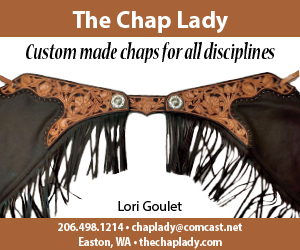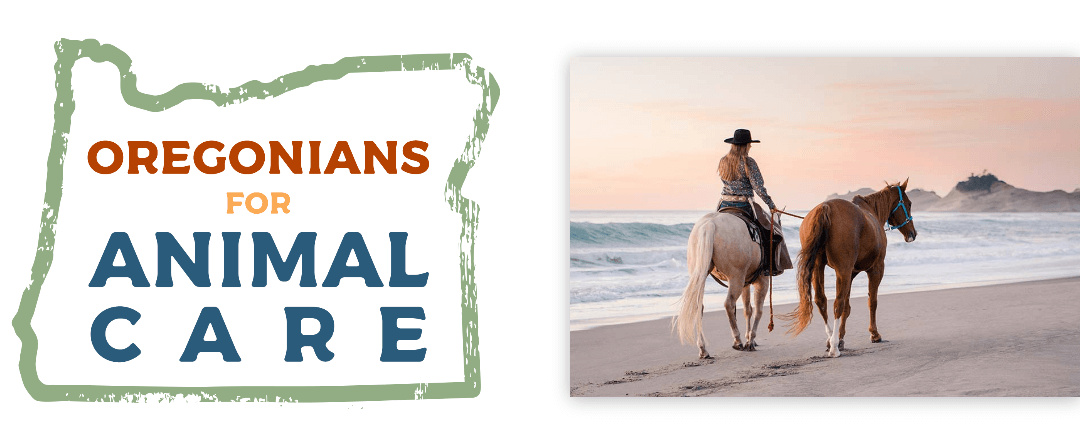The Oregon Horse Council is part of a coalition of livestock associations and leaders from across Oregon working to fight this petition.
From the Oregon Farm Bureau:
By Mary Anne Cooper, OFB Vice President of Public Policy
5/5/2021
I have been fielding a lot of questions from members about a concerning proposal coming forward around Oregon’s livestock industry. What is it and what do you need to know?
IP-13 is an initiative petition that would classify artificial insemination and other practices as “sexual assault” of an animal, ban the slaughter of animals (!!!), and pretty much eliminate every other exclusion from the animal crime statutes that our members rely on for their livestock operations. Put simply, this petition is the biggest threat to the livestock industry we have seen in decades.
A few initial points:
- This is an initiative petition, not a legislative bill. This means that while you should ABSOLUTELY still write your legislator expressing your concern, it will actually be the voters who would vote on this petition in the November 2022 election.
- It is still in the early stages — the proponents of the petition just submitted the 1,000 signatures they need to get a draft ballot title last week. This kick starts the point where we can officially engage in the process, and OFB is working with our partners to both look at legal routes to challenge the petition getting on the ballot, as well as gearing up for the public-facing campaign that will be needed to defeat this proposal at the ballot box.
What specifically does IP-13 do? It criminalizes animal management by targeting the majority of exemptions from the animal crime statutes that ensure that the laws are not applied more broadly than intended. For example, abuse statutes criminalize the act of people causing injury or death to animals, and rely on exemptions to make sure that things like de-horning, branding, castration, and slaughtering activities are still allowed even though they technically do cause injury or death (in the case of slaughtering) to the animals. This petition would remove those exemptions, as well as a host of other exemptions from Oregon law, having the effect of criminalizing those activities.
Specifically, the petition:
- Deletes the “good animal husbandry” exemption from the crime of animal abuse in the second degree (when a person “intentionally, knowingly, or recklessly causes physical injury to an animal”) and animal abuse in the first degree (when a person intentionally, knowingly, or recklessly causes serious physical injury to an animal or cruelly causes the death of an animal), and animal neglect. These are misdemeanor offenses, unless the violation is committed in the presence of a minor child, then first-degree abuse or neglect can become a felony (so much for family farming and ranching!)
- Adds “breeding domestic, livestock, and equine animals” to the list of activities that constitutes sexual assault of an animal, effectively making it a sex crime to artificially inseminate animals, and potentially targeting preg-checking and even planned breeding of animals.
- Removes nearly every exemption that prevents common activities from being considered abuse or sexual assault, including transportation, rodeos, commercial poultry, good animal husbandry practices, slaughter, fishing, hunting and trapping, wildlife management practices, scientific or agricultural research, pest and vermin control, and handling and training techniques.
Put simply, this petition is designed to criminalize farming, ranching, hunting, trapping, pest control, and killing of animals for any reason. It is also designed to prevent anything but offering any medical care to animals, and ensure that activities typically done for animals’ health and safety – like branding or de-horning – cannot occur. You’ll note that the initiative doesn’t only target agriculture – it would also effectively ban hunting, research involving animals, rodeos, circuses, and most other activities involving animals.
Oregon has among the most progressive laws around animal abuse in the nation – however, those laws only passed the Legislature because they were specifically negotiated to NOT cover farming, ranching, hunting, trapping, research, and other activities where existing standards of animal care and husbandry already apply. The intended and unintended consequences of this proposal would be staggering – I can think of very few aspects of agriculture that wouldn’t be touched. Vole removal, beaver removal, and other activities necessary for supporting farming would be criminalized alongside animal agriculture.
So who is behind this proposal? David Michelson is the activist behind IP13. He is serving as both campaign director and chief petitioner of Yes on IP13, and formed the organization “End Animal Cruelty” to run this initiative. He is also behind a similar proposal in Colorado. However, it appears they are getting support from a wide variety of animal rights organizations, and are well resourced.
So what can you do now? Make sure your friends and family – especially those who aren’t connected to agriculture – are aware of this proposal and the sweeping impact it could have. We will need all facets of agriculture to engage alongside the other targeted industries. Do you have friends who like to hunt or who have ever had to trap a rat in their house? Make sure they know about this proposal. While the initial battles in the initiative petition process are largely legal, by this summer we will need all hands on deck to help fundraise and spread the word about this proposal. Any donations to Oregon Farm Bureau’s Voter Education Fund marked for IP-13 will also go to our efforts to fight this petition!
Have questions? Please feel free to reach out to me!
Mary Anne Cooper, OFB Vice President of Public Policy: [email protected]
SIGN UP FOR NOTICES AT: https://oregoniansforanimalcare.org

The Northwest Horse Source is an independently owned and operated print and online magazine for horse owners and enthusiasts of all breeds and disciplines in the Pacific Northwest. Our contemporary editorial columns are predominantly written by experts in the region, covering the care, training, keeping and enjoyment of horses, with an eye to the specific concerns in our region.






